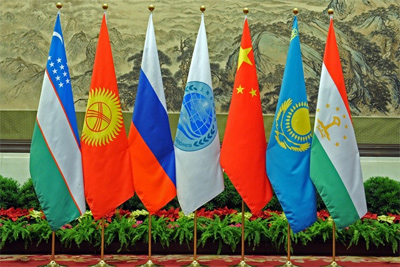
From Regional Platform to Global Pivot: Can the SCO Reinvigorate Multilateral Trade in a Time of Tariff Tensions?
From Regional Platform to Global Pivot: Can the SCO Reinvigorate Multilateral Trade in a Time of Tariff Tensions?
Tashkent, Uzbekistan (UzDaily.com) — As Washington imposes new tariffs, the already fragile global trade network braces for fresh disruption. In this climate, the Shanghai Cooperation Organisation (SCO) summit in Tianjin offers a rare moment to shift the narrative—from confrontation to coordination.
This year, coordination will reach beyond Asia. For the first time, the SCO will adopt a “SCO+” model, inviting ASEAN, the Commonwealth of Independent States (CIS), the UN Development Programme (UNDP), and seven other international organizations. The aim: to build a cross-regional cooperation matrix linking Asia, Europe, and global governance bodies.
The SCO, once a security-focused bloc, is recasting itself as a platform for resilient, inclusive trade. Now, the summit in Tianjin, the largest of the kind in SCO history, is promising stronger solidarity and more results-driven cooperation.
Tariffs, Tensions, and Strategic Shifts
On 6 August, U.S. President Donald Trump signed an order imposing an extra 25% tariff on Indian goods, raising rates to 50%. The trigger: India’s purchase of discounted Russian oil.
New Delhi condemned the move as “unfair” and “unjustified,” noting that the U.S. itself continues trading with Russia. More strikingly, Prime Minister Narendra Modi will attend the SCO Summit. His attendance signals a diversification of partnerships beyond traditional Western alignments—underscoring the SCO’s value as a bridge between South Asia, Central Asia, and beyond.
Canada also faced tariffs—50% on steel, aluminum, and copper. Prime Minister Mark Carney said the measures violate the CUSMA trade pact with America and Mexico. For Ottawa, as for others, trade diversification is becoming a geopolitical necessity—making the SCO’s widening network relevant even outside Eurasia.
SCO’s Expanding Relevance
It is against this increasingly volatile backdrop that the Tianjin Summit takes on heightened urgency. As more countries seek to hedge against U.S.-centric systems, the SCO is emerging as a credible platform for cooperation in trade, energy, security, and finance—outside of the Washington-Brussels axis.
This year’s agenda includes proposals to deepen digital infrastructure links, expand local currency settlements, and develop new regional energy corridors. These priorities aim to fortify member economies against external shocks and foster more autonomous supply chains.
One of the most consequential shifts underway is the SCO’s push toward “de-dollarization.” Member states such as China, Russia, and India are accelerating efforts to settle trade in local currencies and reduce reliance on the U.S. dollar. Alternative payment systems are also in development, aimed at insulating economies from dollar-based sanctions and global financial volatility.
The SCO’s broader goal --- from a regional security club to a globally influential platform – finds its clearest expression in the “SCO+” model in concrete form—bringing ASEAN, the CIS, UNDP, and others directly into the conversation. ASEAN Secretary-General Kao Kim Hourn will lead a delegation to explore alignment between the SCO and ASEAN in areas such as South China Sea security and the digital economy—tangible steps toward linking two of the world’s largest regional frameworks. With the participation of leaders from Iran, India, China, and Russia—alongside dialogue partners like Türkiye and ASEAN countries—the SCO’s gravitational pull is increasingly cross-continental.
From Multipolarity to Multi-Connectivity
The SCO has long presented itself as a champion of multipolarity. But Tianjin could mark the transition into its next phase: multi-connectivity. Beyond slogans, this means building hard and soft infrastructure that connects Eurasia through tangible cooperation in logistics, finance, digital economies, and green development.
China has proposed the establishment of SCO-wide data-sharing protocols and cross-border e-commerce platforms. Kazakhstan is advocating new rail corridors connecting Central Asia to Europe via the Caspian Sea. Uzbekistan wants to spearhead food security collaboration through agro-tech innovation. Dialogue partners are also stepping in—Türkiye pushing for new energy corridors linking the Caspian to the Mediterranean, and ASEAN states exploring digital interoperability with Central and South Asia.
Financial cooperation is also re-emerging as a priority. With growing fragmentation in the global payments system, several SCO members are advocating for the expansion of local currency settlement mechanisms and regional financial safety nets. These ideas may still be early-stage, but they reflect a real appetite to insulate intra-bloc trade from the volatility of dollar-based systems.
From the Global South to a Global Pivot
Some analysts describe this moment as a “Global South awakening.” But the term may fall short of capturing the structural shifts underway. The SCO is not simply giving voice to the developing world—it is fast becoming a pivot point in the reorganization of global trade geography.
This pivot is not reactive; it is constructive. From the expansion of alternative institutions to the creation of new trade norms and infrastructure, the SCO is actively shaping the contours of a post-Western economic order. With 10 member countries, 14 dialogue partners, two observer states, and growing external engagement, the organization’s gravitational pull is stretching well beyond its original geography.
Conclusion: Tianjin as a Turning Point
The SCO Summit in Tianjin arrives at a critical juncture. Rising tariffs, sanctions regimes, and weaponized economic tools are fragmenting the global system. Meanwhile, institutions like the WTO struggle to enforce norms or mediate disputes.
In this uncertain context, the SCO is offering a different vision—one rooted in pragmatic cooperation, inclusive dialogue, and regional synergy. It may not seek to replace the existing global order. But in Tianjin, the bloc may begin to reshape it—pivoting toward a trade geography defined not by dominance and exclusion, but by diversity, resilience, and connectivity.
By Tianlu Zhu,
Host of CGTN Radio
The views expressed are those of the author and do not necessarily reflect the views of UzDaily.